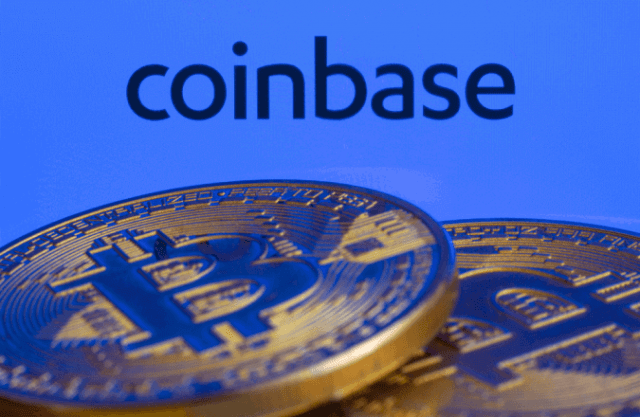What is Bitcoin Cash? A trader’s guide

What is Bitcoin Cash?
Bitcoin Cash is a decentralised, open-source blockchain focused on peer-to-peer transactions using its native cryptocurrency, bitcoin cash (BCH). It was created as a hard fork from Bitcoin in August 2017, stemming from debates about Bitcoin’s scalability. A hard fork occurs when a blockchain splits into two separate networks due to disagreements over protocol changes. The two networks share the same transaction history up until the split, after which they operate independently.
Bitcoin Cash emerged from concerns within the Bitcoin community regarding scalability, particularly related to Bitcoin’s block size limit of 1 MB, which limited the number of transactions per block, leading to higher fees and slower transaction times. In contrast, Bitcoin Cash increased the block size limit to 8 MB at launch and later to 32 MB, allowing for significantly more transactions per block, improving speed and reducing fees.
BCH frequently ranks among the top 15 cryptocurrencies by market capitalisation and is often referred to as an altcoin, a term used to describe cryptocurrencies other than bitcoin (BTC).
Bitcoin vs Bitcoin Cash: what are the key differences?
Bitcoin Cash originated from Bitcoin and they share some similarities, as well as key differences. Here’s a look at how they compare:
|
Feature |
Bitcoin Cash |
Bitcoin |
|
Origin |
Created in 2017 as a hard fork of bitcoin |
Launched in 2009 by Satoshi Nakamoto |
|
Block size limit |
Initially 8 MB, now up to 32 MB |
1 MB |
|
Network speed |
Approximately 116 transactions per second |
7 transactions per second |
|
Transaction fees |
Lower fees due to increased capacity |
Generally higher |
|
Maximum token supply |
21 million BCH |
21 million BTC |
|
Consensus mechanism |
Proof-of-work (PoW) using SHA–256 algorithm |
Proof-of-work (PoW) using SHA–256 algorithm |
|
Market capitalisation |
Often ranks around the top #10-15 |
Largest cryptocurrency by market capitalisation |
|
Philosophy |
Peer-to-peer electronic cash, focus on transactions |
Store of value, ‘digital gold’ |
|
Development focus |
On-chain scaling via larger block sizes |
Layer 2 solutions, such as lightning network |
You can learn more about Bitcoin (BTC) in our comprehensive guide to Bitcoin.
How does Bitcoin Cash work?
Bitcoin Cash (BCH) aims to be a more practical medium of exchange for everyday transactions, staying true to the original vision of Bitcoin as a ‘peer-to-peer electronic cash’ network.
It operates on a blockchain, which is a digital ledger that records all transactions across a decentralised network of computers. Like Bitcoin, the integrity and immutability of the Bitcoin Cash blockchain is secured using the proof-of-work (PoW) consensus mechanism, where miners solve complex mathematical puzzles to validate transactions and add new blocks to the chain.
Miners play a crucial role in securing the network and processing transactions. By solving mathematical problems using computational power, miners compete for the opportunity to add the next block to the blockchain. Successful miners are rewarded with newly minted BCH coins and transaction fees from the transactions included in the block.
A key difference lies in the block size. Bitcoin Cash increased the block size limit from Bitcoin's 1 MB to 8 MB at its inception, and it’s since expanded up to 32 MB. This larger block size means Bitcoin Cash can process more transactions per block than Bitcoin, which can help reduce congestion and lower transaction fees.
In November 2018, disagreements within the Bitcoin Cash community led to a hard fork, leading to the creation of Bitcoin SV (Satoshi Vision). The split resulted from conflicts over proposed upgrades to Bitcoin Cash's protocol, particularly regarding block size limits and the inclusion of smart contract functionality.
What’s the Bitcoin Cash price history?
Since its inception as a hard fork from Bitcoin in August 2017, the bitcoin cash price history has often been volatile, with periods of extreme price fluctuations interspersed with periods of inactivity and market consolidation.
Past performance does not guarantee future results.
BCH quickly surged in value in the early days following its launch, reaching its all-time high in December 2017. The rapid increase took place during a cryptocurrency boom, where speculative interest and media coverage drove many digital assets to record valuations. However, this peak was short-lived as the market entered a downtrend in early 2018 which saw the BCH price decrease significantly, reflecting its susceptibility to follow broader cryptocurrency market trends.
Bearish sentiment continued throughout most of 2018, with BCH trending downwards overall. In November 2018, Bitcoin Cash underwent another hard fork, resulting in the creation of Bitcoin SV. This split stemmed from internal disagreements over protocol changes and further impacted the BCH price as traders considered the potential implications of the division.
Despite these challenges, Bitcoin Cash continued to evolve, implementing several major upgrades such as CashScript and SmartBCH. CashScript was released in 2020 and introduced Ethereum-like smart contract functionality to Bitcoin Cash. SmartBCH, also known as Smart Bitcoin Cash, is an EVM-compatible (Ethereum Virtual Machine) sidechain for Bitcoin Cash that was deployed in 2021 to boost interoperability. These developments correlated with increased the BCH price, reflecting how technological updates can boost anticipation and demand.
As of October 2024, BCH remains a significant player in the cryptocurrency market, often ranking among the top cryptocurrencies by market capitalisation. Its recent price movements reflect both ongoing technological advancements within its network and broader trends affecting digital currencies globally.
Which factors might influence the Bitcoin Cash live price?
Bitcoin Cash prices may be influenced by a combination of factors specific to its network and the broader cryptocurrency landscape. Here are some conditions that might shift the BCH price.
Network developments and upgrades
Technological advancements can shift BCH prices. Successful implementations like CashScript and SmartBCH add functionality which can attract users and developers to the network, potentially increasing demand. Conversely, delays or failures in implementing these upgrades may negatively impact market confidence.
Adoption as a medium of exchange
Expanded BCH integrations for transactions can drive demand. Partnerships with payment processors, e-commerce platforms and increased merchant acceptance increase its practicality for everyday use, which could positively impact the BCH price. Meanwhile, competition or lack of merchant interest might cause adoption rates to decline, putting downward pressure on BCH.
Competitors
Bitcoin Cash positions itself as a more transaction-friendly alternative to Bitcoin. Advancements to the original Bitcoin network’s scalability – due to solutions like its Lightning Network – might diminish Bitcoin Cash’s technological advantage and reduce demand. Conversely, if Bitcoin Cash continues to improve its functionality it could gain more traction, possibly causing the price to increase.
Mining dynamics
Bitcoin Cash uses the same SHA-256 mining algorithm as Bitcoin, which means that miners can switch between the two networks with relative ease depending on profitability. Changes in mining difficulty, hash rate and miner participation can impact network security and investor confidence.
Community sentiment and governance
A cohesive community and clear governance can bolster confidence and positive sentiment in BCH, attracting users and traders, which may potentially push the price higher. However, internal disagreements leading to hard forks – like the split that created Bitcoin SV – could cause uncertainty and fragmentation. Such disputes may lead to a loss of confidence among traders and users, which may influence the BCH price to decrease.
If you’re interested in learning more about the future of Bitcoin Cash, read our latest bitcoin cash (BCH) price predictions.
What are the Bitcoin Cash trading hours?
Bitcoin Cash (BCH) operates on a decentralised blockchain network that is active 24 hours a day, seven days a week, 365 days a year. This means you can trade BCH at any time, including weekends and holidays.
-
Cryptocurrency exchanges – many exchanges facilitate 24/7 trading, allowing for continuous market participation.
-
Online trading platforms – some reliable and trusted brokerages provide BCH trading via CFDs.
If you choose to trade CFDs, you can follow the BCH performance live in US dollars with our comprehensive BCH/USD price chart.
Monitoring the cryptocurrency’s activity can help you to keep an eye out for any key fundamental or technical events that may affect short-term movements in its value.
How to keep and store bitcoin cash
After purchasing bitcoin cash (BCH), you can store it in a cryptocurrency wallet. Options include:
-
Software wallets – purpose-built desktop or mobile wallets like Bitcoin Cash Wallet, Electron Cash and Badger Wallet.
-
Hardware wallets – physical devices like Ledger Nano S/X and Trezor Model T provide secure offline storage, protecting your BCH from online threats.
It's important to ensure your wallet is secure and to keep your private keys safe.
Alternatively, if you trade on the BCH/USD price or BCH/BTC price via CFDs, you don’t have to worry about storing or securing the underlying asset.
How to trade Bitcoin Cash
Bitcoin Cash (BCH) is a cryptocurrency, meaning that it can be traded directly on a cryptocurrency exchange or peer-to-peer. Traders may also choose to trade BCH via a derivative, a financial product that takes (or ‘derives’) its value from the price of the underlying asset.
You could use a contract for difference, or CFD, to trade on the BCH/USD price or BCH/BTC price. A CFD is a contract, typically between a broker and a trader, where one party agrees to pay the other the difference in the value of a security, between the opening and closing of the trade.
You can use CFDs to trade on whether you think BCH/USD will rise (called ‘going long’) or fall (‘going short’). CFDs give you access to leverage, allowing larger positions with a relatively small outlay. This amplifies your potential profits, but also your potential losses, making CFD trading risky.
You can learn more about trading cryptocurrencies with Capital.com in our comprehensive guide to cryptocurrency trading.
Aside from CFDs, you can also trade BCH through instruments like futures, options, ETFs, and mutual funds. Each offers an alternative to the leveraged trading of CFDs, suiting different risk profiles and investment strategies.
FAQs
What is Bitcoin Cash used for?
Bitcoin Cash is a peer-to-peer electronic cash system used for making payments and transferring value. Its increased block size compared to Bitcoin allows for faster transactions with lower fees, and its aim is providing practicality for everyday transactions, merchant payments and remittances.
Is Bitcoin Cash better than Bitcoin?
Whether Bitcoin Cash is ‘better’ than Bitcoin depends on your needs and goals. Bitcoin Cash offers faster, cheaper transactions, making it more practical for everyday purchases. On the other hand, Bitcoin is more widely accepted, has a larger market cap, and is seen as a store of value, often referred to as ‘digital gold’, which appeals to long-term investors. Which is better ultimately depends on whether you prioritise daily use or long-term investment.
Who owns the most bitcoin cash?
Due to the pseudonymous nature of blockchain addresses, it's difficult to determine who owns the most BCH. However, large holders, often referred to as ‘whales,’ can influence the market. Some exchanges and institutional investors may hold significant amounts of BCH.
Visit our other complete guides

How to trade Coinbase
